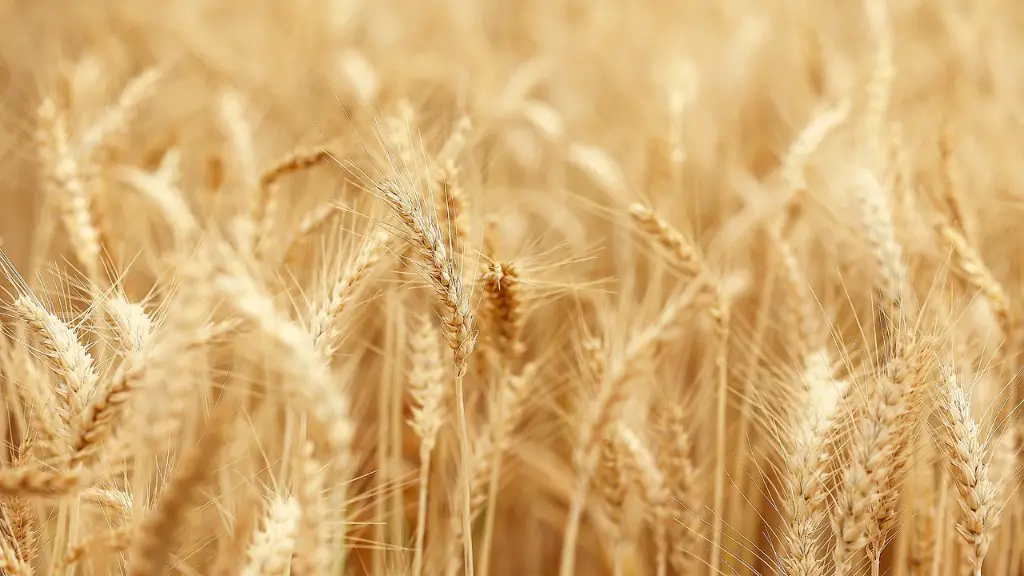Thomas Jefferson, the third president of the United States, was a strong advocate for agriculture. He believed that agriculture was the foundation of the American economy and that it was essential to the success of the new nation. Jefferson was a strong believer in the rights of farmers and he worked to ensure that they had the opportunity to succeed. He also believed that agriculture was a key part of the American way of life and that it should be defended.
Jefferson supported agriculture because he believed that it was the key to a strong economy. He thought that farmers were the backbone of the country and that they deserved to be supported. He also believed that agriculture was a more stable industry than manufacturing or trade.
Why was Thomas Jefferson important to agriculture?
Jefferson was a strong advocate for good stewardship of the land and was a big supporter of agricultural societies and conservation efforts. He also believed that university level education and research were crucial for advancing agriculture.
Jefferson’s vision for the American economy was one that would be built on agriculture. He believed that the vast land of America could be utilized for farming and that the work-shops should remain in Europe. While he recognized the need for some domestic industry, he believed that agriculture would be the foundation of the American economy.
What is Jefferson’s agrarian ideal
President Thomas Jefferson believed that a rural society was superior to an urban one. He felt that the independent farmer was superior to the paid laborer. This philosophy was evident in his policies and actions as President.
Thomas Jefferson favored an agrarian farming culture because he believed that it was more conducive to individual liberty and self-sufficiency. Jefferson believed that an industrial city-style landscape would create a class of wage laborers who were reliant on others for their livelihood.
How did Thomas Jefferson feel about industrialization?
Thomas Jefferson was a strong advocate for small-scale industry and agriculture over large-scale industry. He believed that manufacturing bred aristocrats and poor men, and that transportation systems should be diversified to allow for a more widespread distribution of goods and services.
Jefferson was a very important figure in early American history. He was one of the main drafters of the Declaration of Independence and he also worked hard to make sure that the principles in the Declaration were enacted in his home state of Virginia. He was a strong advocate for religious freedom and he wrote a bill that established religious freedom in Virginia in 1786. Jefferson was a very important voice in early America and his work helped to shape the country that we know today.
What was the Jeffersonian vision of white farmers?
Jefferson’s idea of a self-sufficient nation was at odds with the reality of an America whose wealth was increasingly reliant on foreign markets. However, his vision of a nation of yeoman farmers served as a strong foundation for the country’s economy and politics. Today, America is still a leading economic and political power, thanks in part to Jefferson’s vision.
Jefferson’s thoughts on property ownership and good citizenship were very much in line with the republican political thought of his time. He believed that small landowners (particularly small farmers) were essential to the good of the country, and that property ownership was essential to good citizenship. While some of his beliefs may seem antiquated to us now, they were very much in line with the thinking of his time.
Did Thomas Jefferson want farmers
He was zealous about the need for farmers to share innovative ideas, improved crops, and new machinery. He was always eager to learn new methods and share his knowledge with other farmers. He was a true pioneer in the agricultural industry.
The Comprehensive Agrarian Reform Law (CARL) was enacted on June 10, 1988 by former President Corazon C Aquino. The law provides for the expropriation and distribution of private agricultural lands to qualified farmer-beneficiaries. The law became effective on June 15, 1988.
Why was Jefferson against industrialization?
Jefferson was deeply concerned about the environmental damage caused by coal-burning factories. He believed that factory work created dependent families, and he believed that industrialization would create a society similar to the one that plunged France into its bloodiest internal conflict.
Thomas Jefferson felt that the American economy would do best if it relied on agriculture. President John Adams wanted to go to war with France, but Congress would not give him approval. Repaying the full value of all bonds was part of Alexander Hamilton’s economic plan.
Who wanted to promote farming instead of manufacturing
Jefferson believed that agriculture was the best economic support for the county over industrialization. At this time, 90% of all Americans made a living off of agriculture rather than industry.
The major events that took place during President Jefferson’s presidency were the Tripolitan war, the establishment of the US Military Academy, the purchase of Louisiana, the admission of Ohio to the Union, the Lewis and Clark expedition, the abolition of the slave trade, the Chesapeake affair, and the Embargo Act.
What are 3 important facts about Thomas Jefferson?
Thomas Jefferson was a leading figure in our country’s quest for independence. He was born on April 13, 1743 and was a multi-talented thinker. He went on a hunger strike (and encouraged others to join him) and was the major pen of the Declaration of Independence.
Jefferson was a true inventor, and his inventions reflect his innovative mind. The macaroni machine is a classic example of his inventive genius, and the revolving chair with leg rest and writing arm is another great example of his creativity. The beds he designed for his home were both functional and stylish, and the automatic doors he created for his parlor were both practical and convenient. Jefferson’s inventions reflect his inventive mind and his commitment to creating new and better ways to do things.
Final Words
Jefferson was an advocate for agriculture and saw it as a key to the success of the young United States. He believed that a strong agricultural sector would provide food and goods for the growing population and spur economic growth. Additionally, he thought that agriculture could help to create a sense of virtue and morality among the citizens.
Jefferson believed that agriculture was the backbone of the American economy and that it needed to be supported in order to thrive. He also thought that it was a more virtuous way of life than other pursuits.




